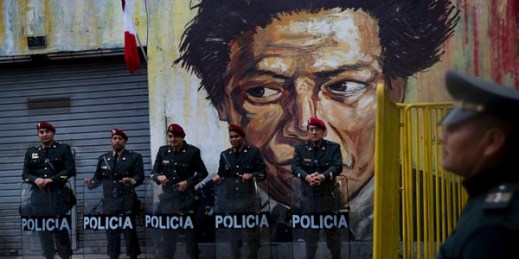
In the most serious accusation among many that have damaged the reputation of Peru’s National Police in recent years, the country’s Interior Ministry has identified a group of police officers who allegedly participated in “death squads” that assassinated petty criminals in order to earn extra money or promotions, at a time when crime was rising to unprecedented levels. The charges complicate the urgent challenge of improving public security for a new government that has been in power for less than a month. According to the national press, 97 police officers are under investigation for the extrajudicial killings of 27 criminals […]



